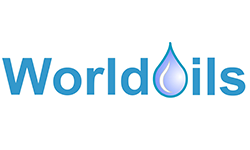Masterclass on Carbon Capture and Storage (CCS)
Designed for technical staff, geoscientists, and engineers, this course offers a comprehensive dive into CCS (Carbon Capture and Storage). It begins with the fundamentals of CCS need and CO2 behavior in the subsurface, supported by real-world data from current and past projects. You will explore CO2 storage capacities in saline aquifers and depleted gas fields, along with insights on injection rates, reservoir permeability, and pressure management. Key topics include reservoir and top-seal properties, geomechanics to prevent fractures, and the geochemistry of CO2 trapping. The course also covers CO2 leakage risks, monitoring, and risk assessment, providing a practical, science-driven approach to CCS challenges.
Day 1 : Overview
Introductions and Context
- Background on CCS and its role in reducing greenhouse gas emissions, with an exercise on changing greenhouse gas sources in developed nations.
Geological Storage Options
- Overview of CCS history, types of projects, and extend of need to scale up CCS, with a related exercise.
Evidence and Projects
- Insights into CO2-EOR, saline aquifer CCS, hub and cluster plans, and typical injection rates.
CO2 Properties and Storage
- Phase behavior, trapping mechanisms, and storage quantification in saline aquifers vs. depleted gas fields, with an exercise on phase and depth effects
Porosity in Storage Reservoirs
- Typical values, porosity distribution in sandstones and carbonates
Case study and exercise: Porosity controls in CCS reservoirs.
Day 2
Storage Efficiency
- Factors influencing CO2 trapping, including viscosity, buoyancy, and plume radius, with a comparison of efficiency in gas fields vs. saline aquifers. Exercise on storage efficiency influenced by (i) fluid viscosity and (ii) gravity effects.
CO2 Injectivity
- Key role of permeability in injection rates, controls on permeability, and an exercise predicting injection rates
Relative Permeability
- Impact on CO2 flow, formation damage, and intraformational baffles, with an exercise on predicting effect of formation damage on injection rates.
Geomechanical Aspects
Effects of high-pressure CO2 on stresses, fault failure, and intact rock behavior in saline aquifers and gas fields. Exercise on safe maximum CO2 injection pressure and thus injection rates.
Mineral Dissolution Processes
Mechanisms, extent, and evidence of dissolution, and its effects on storage and injection rates.
Case study and exercise: The range effects of dissolution on CO2 storage and injection rate.
Day 3
Mineral Precipitation Processes
- Causes, controls, and likely extent of mineral precipitation during CO2 injection, including halite in saline aquifers and rapid mineral sequestration in basalts.
Top-Seal Attributes
- Mudstone porosity, geochemistry, and effects of CO2, with an exercise on calculating maximum safe CO2 column height.
Leakage Risks
- CO2 diffusion and advection through top-seals, leakage via wells, and interaction with well materials. Exercise on predicting potential leakage rates from saline aquifers.
Geomechanical Issues
- Fault behaviour under CO2 pressure, fault reactivation risks, and fracturing evidence. Exercise on predicting uplift from CO2 injection.
Monitoring CO2 Injection
Purposes, methods, costs, and regulatory requirements, with a focus on risk assessment using immediacy versus severity matrices.
Case study and synthesis comparing the successful Sleipner (Norway) and the terminated In Salah (Algeria) CCS projects in terms of perception of leakage risk
During this course, you will
- Explore the role of geoscience in CCS and its impact on CO2 emissions reduction.
- Examine past CO2 injection projects and their differences from industrial-scale CCS.
- Understand CO2 behaviour in the subsurface, including injection pressures and stress regimes.
- Learn about CO2 storage capacities, from pore-scale to aquifer volumes.
- Analyse factors influencing CO2 flow, including permeability and aquifer architecture.
- Investigate the effects of CO2 on host aquifers, from geomechanical to geochemical impacts.
- Assess seal integrity and risks, from fracking to induced seismicity and leakage.
- Explore strategies for monitoring and ensuring safe, long-term CO2 storage.
- Compare CCS in saline aquifers versus depleted gas fields.
This course is designed for technical staff, geoscientists, petrophysicists and engineers, most of whom will have had experience in oil and gas exploration and production projects; the course will allow you to adapt your existing petroleum skills for the new world of CCS. The course is also suitable for those from a technical background embarking on a career in the energy transition.
Richard Worden
Richard H. Worden is a Professor of Geology in the Department of Earth, Ocean, and Ecological Sciences at the University of Liverpool, UK. He earned a BSc in Geology and Geochemistry (1981–1984) and a PhD in Geology from the University of Manchester (1984–1988). After research at the University of Edinburgh, he worked as a sedimentary geochemist at BP Sunbury, contributing to reservoir and geochemistry projects. He later became a lecturer at Queen’s University Belfast before joining the University of Liverpool in 2000.
Prof. Worden collaborates with industry on advice, training, and joint research projects. His research focuses on geoscience applications in the energy transition (CO2 and hydrogen storage, nuclear waste disposal) and subsurface reservoir and top-seal studies using geochemistry, geochemical modelling, sedimentology, petrophysics, geomechanics, and machine learning.
Upcoming Training
- Code PST0440-202504
- Start Date 10 Nov, 2025
- End Date 12 Nov, 2025
- Locations Jakarta, Indonesia
- Cost USD 3195
- Code PST0440-202505
- Start Date 01 Dec, 2025
- End Date 03 Dec, 2025
- Locations Bali, Indonesia
- Cost USD 3395
Upcoming Training
| Code | Start Date | End Date | Locations | Cost | Instructor |
|---|---|---|---|---|---|
| PST0440-202501 | 13 Aug, 2025 | 15 Aug, 2025 | Kuala Lumpur, Malaysia | USD 3195 | Richard Worden |
| PST0440-202502 | 18 Aug, 2025 | 20 Aug, 2025 | Jakarta, Indonesia | USD 3195 | Richard Worden |
| PST0440-202503 | 05 Nov, 2025 | 07 Nov, 2025 | Kuala Lumpur, Malaysia | USD 3195 | Richard Worden |
| PST0440-202504 | 10 Nov, 2025 | 12 Nov, 2025 | Jakarta, Indonesia | USD 3195 | Richard Worden |
| PST0440-202505 | 01 Dec, 2025 | 03 Dec, 2025 | Bali, Indonesia | USD 3395 | Richard Worden |




